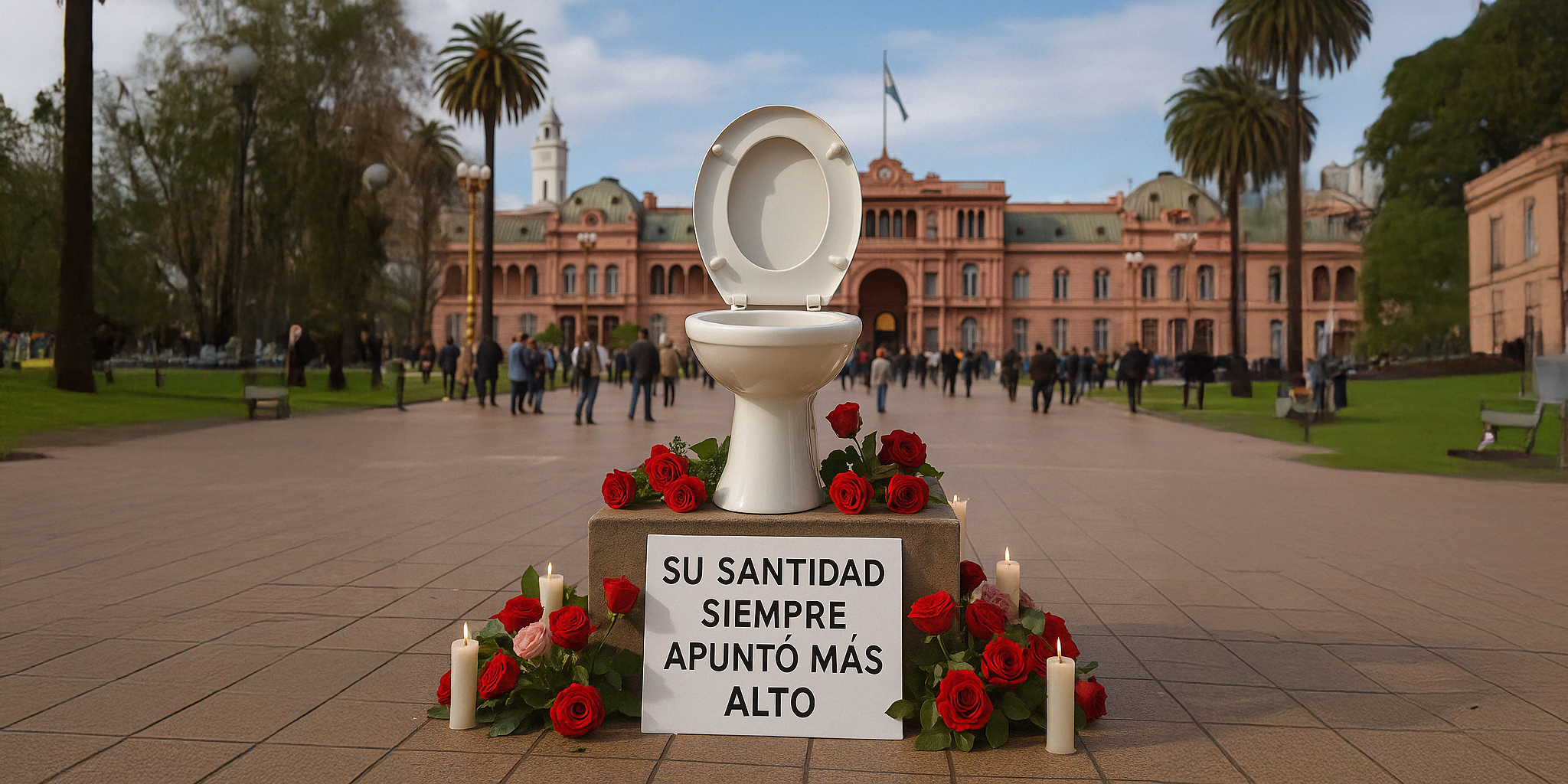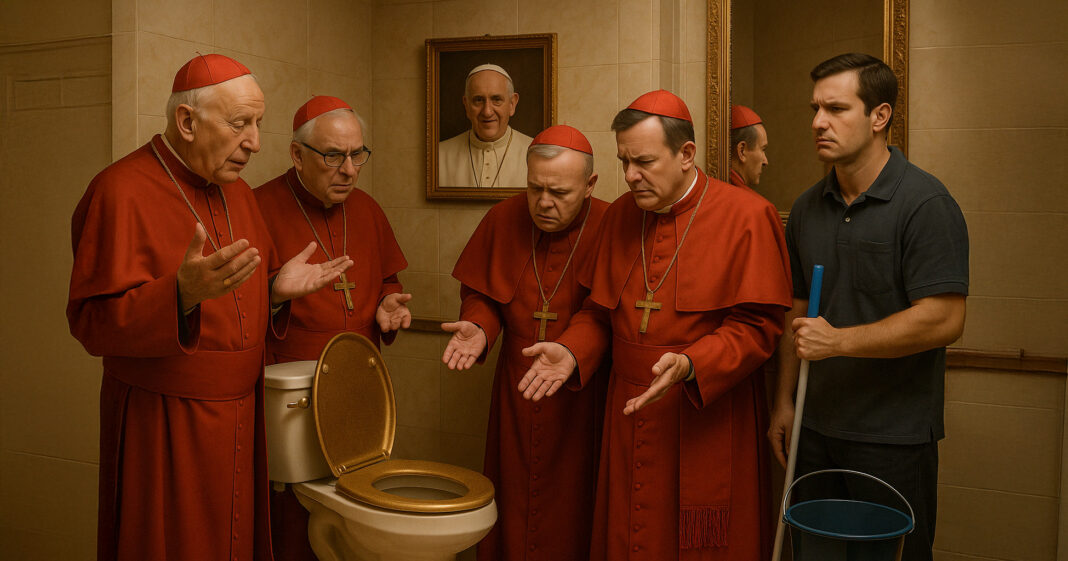Vatican City — Vatican officials today lovingly honored the late Pope Francis, praising his lifelong devotion to mercy, humility, and the poor, while privately admitting to a decade-long struggle with the pontiff’s refusal to lower the papal toilet seat.
A secret internal document leaked earlier today, code-named “Operation Lid-Down,” revealed extensive yet fruitless efforts by cardinals to gently persuade Francis to embrace proper bathroom etiquette. The memo contained elaborate flowcharts, complicated seat-lowering schedules, and cryptic references to “Seatgate.”
Cardinal Ernesto Bianchi explained, “We loved His Holiness dearly, but seriously, how hard is it to put the seat down? It’s not transubstantiation.”
In response to growing scrutiny, the Vatican’s newly outsourced PR agency hastily launched a campaign designed to reframe the raised seat as symbolic of Francis’s “openness and transparency.” The social media hashtags #LiftedForTheLord and #SeatOfMercy immediately ignited an internet firestorm. Theologians swiftly countered that an open toilet seat represented neither theological openness nor divine mercy, but simply “inconsiderate bathroom practice.”
Anonymous Vatican cleaning staff revealed nightly rituals termed “acts of seat mercy,” wherein janitors gently lowered the seat after Francis retired. One exhausted custodian remarked, “He taught us to love and forgive, but couldn’t he have shown a little more love to those of us cleaning the bathroom?”
Adding solemnity to Francis’s funeral mass, Vatican liturgists staged a ceremonial lowering of a golden toilet seat, symbolizing the end of an era. Monsignor Giovanni Giordano, long considered the Vatican’s scapegoat for trivial mishaps—from lost prayer beads to misplaced vestments and suspicious sanctuary flatulence—finally had his moment of vindication.
“I’ve spent decades quietly taking the blame for everything from lost keys to unusual smells during Mass,” said Giordano. “But this toilet seat situation? Absolutely not my fault. For once, history will absolve me.”

Meanwhile, international reactions ranged from gentle amusement to outright confusion. Argentine faithful erected a whimsical memorial featuring a raised porcelain seat in Buenos Aires’s Plaza de Mayo, adorned with candles and roses, captioned lovingly: “His Holiness always aimed higher.”
Economists calculated that the Vatican spent approximately €42,000 annually addressing seat-related plumbing incidents—money a Vatican spokesman lamented could have “built at least two modest orphanages or funded a high-speed espresso machine in the Curia breakroom.”
As the conclave gathers to select a successor, cardinals have publicly promised transparency, theological wisdom, and rigorous bathroom etiquette. At press time, Swiss Guards were reportedly briefing papal candidates on the finer points of soft-close toilet hinges.






